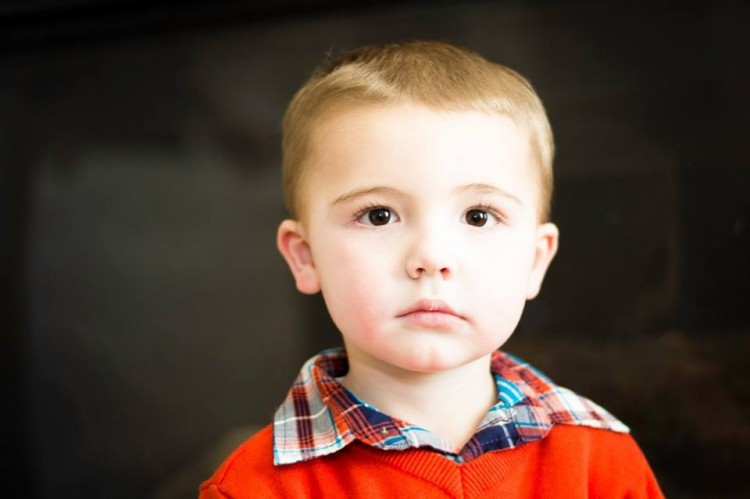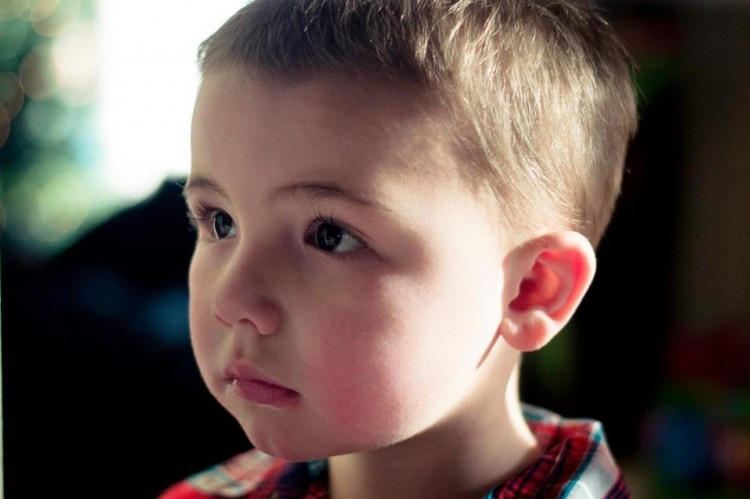Every time I sit down to write, I often already have a positive message to end on in mind. I don’t have that today. Today I am sad, I am angry and I am coming from a place that I don’t often go: a place with walls papered by self-pity and lighting dimmed by exhaustion. We’ve all been there, but of course, we try not to live there.
I read story after story that highlight the aspects of having a child with autism that are positive and uplifting. I’ve written many posts that do the same. I think these stories are important; they help spread awareness and acceptance, they celebrate our children holistically, which is great because our children deserve to be celebrated.

I wonder, though, if sometimes we sugarcoat or put a positive spin on reality to make ourselves feel better or maybe to avoid coming off as a victim. After all, bloggers who have written more negatively about their children with autism are often scrutinized and demonized. Another reason I usually stay away from the negative: I don’t want my child (or others with autism) demonized or people to think any less of him.
As positive as I try to stay, there’s a reality with which we have to contend. That reality usually gets to make a short appearance in my blog in sentences like “Of course we have our challenges” or “And even though he struggles…” Anyone affected by autism knows those phrases are emotionally charged.
But I started thinking. People outside of our household, people outside of our community, must all be scratching their heads and wondering this: If our children and their autism are so great and so gifted, why are autism parents so vocal about needing help and advocating for their children? Why would a savant be labeled “disabled” or need to receive special services from a school district?
Autism is a spectrum disorder. No two people on the spectrum are the same. Many of our children are not savants. Many of our children are not even on target with their development for their age. Many of our children will live with us for the rest of their lives.
So, please, don’t tell me autism is a gift. When my child has been screaming every 30 minutes all day long and we have to go to the store and he screams at the checkout, the cashier telling me he’ll be OK and will be great with numbers when he grows up is not what I want to hear.
When I look into my son’s eyes when he doesn’t understand his surroundings and his anxiety and fear are palpable, there’s nothing in this world I wouldn’t do to take that fear away. You cannot look into his panicking gaze as he’s shaking and cowering from everyday stimuli and tell me this is a gift or an enlightening experience.
Please don’t tell me his autism is a gift when I take his little sister to the hospital for a concussion resulting from an impulsive outburst he could not control.
When I see his older brother with tears in his eyes yet again because his little brother doesn’t want to play with him or has lashed out at him, I don’t accept that this is a gift. He’s hurting and his needs are put on the back burner every day; I see no positive in that other than I’m hopeful it will build character and instill compassion in him.
As I bang my head against a wall just trying to get my child an education like everyone else is entitled to, I wonder if outsiders know just how “challenging” it is. We are in a district in a state that won’t even provide classes for preschool children with special needs. So I found a private preschool that would take him, but he has so much anxiety about going every morning that he screams the whole way there and as his teachers carry him in. I have a laundry list of medically prescribed therapies that I have to work around the clock to access for our child. Once we finally have established providers, we drive and we schedule and usually have some type of appointment every day. These are not groundbreaking therapies that are going to have my child doing quantum physics or painting masterpieces; these are necessary to get my child to function high enough to dress himself and feed himself and to allow him to tolerate being in a room with everyday noises.
And then there’s the loneliness. Please don’t tell me autism is a gift when my child and his siblings are no longer invited to birthday parties because parents don’t want one of my child’s meltdowns to ruin their kid’s special day. When I stop having friends outside of the autism community because other people don’t want to hear about autism and how it’s consuming your life, it doesn’t feel like a gift. Unfortunately as much as it consumes our lives, it consumes our conversations too. And that doesn’t make for great girls’-night-out conversation. I can’t say I blame former friends for throwing in the towel, but that doesn’t make it any less lonely. The gift that keeps giving.
I know this post will offend some, but just as my opinion is that autism is not a gift, you, of course, are entitled to a different one. For me, autism is exhausting, and I feel like every minute of every day is spent trying to break my child free from the anxiety that consumes him.
Please don’t tell me autism is a gift. My child is a gift.

This post originally appeared on From the Bowels of Motherhood.
Sign up for what we hope will be your favorite thing to read at night.
